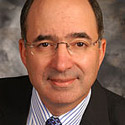04:09 PM
The Flyswatter and the Neutron Bomb: Redefining Mutual Fund Governance
The SEC a last week announced that outside directors must chair mutual fund boards and 75 percent of fund directors must be independent. This is like giving fund boards only two tools: the flyswatter that is easy to wield but has little impact, or the neutron bomb that impacts much but will be used little.
While I whole-heartedly agree that the mutual fund industry needs more oversight, is in need of compliance directors (which the SEC has already mandated) and could use some more outside supervision, I don't believe that appointing outside chairman and fund boards will be the answer. These positions will be in contention with the fund companies' business needs, add additional expense, be difficult to staff, have tremendous liability and in the end have little power to change the fund except through exceptional means.
So what really does the fund board do? The fund board picks the manager, chooses a custodian, overseas the fund business, examines the cost structure and oversees the fund. Each mutual fund has its own board, and a fund giant such as Fidelity or Vanguard has a board for each fund, meaning that the 111 Fidelity Funds listed on Fidelity.com or the 99 Vanguard Funds listed on Vanguard.com would each have a separate board of directors. These boards are required to meet four times a year, which in Fidelity's case would mean 444 meetings.
The logistics in managing this process will be monumental. Multiply the thousands of mutual funds by four times which makes tens of thousands of fund board meetings a year. Where will Mutual Funds find the people? Who would be the right candidates? Someone in the industry? No, the SEC won't allow that. A business executive? Maybe, however, why would they want to, and would they have the time or knowledge? A CPA may be a good candidate — however, they understand accounting, but would they have the ability to direct the fund in the appropriate direction? Well, what about me? I have been in the industry for 24 years, could I be on the board or a chairperson of a Mutual Fund? No way -- I can barely manage my own investments.
On the downside, fund boards will be held accountable. They will be accountable to investors, the SEC, and more importantly these days, to Attorneys General. Given the heightened level of scrutiny, the frequent litigation, the small amount of influence and the large time commitment, why would anyone want to do the job? To go to a fancy conference facility four times a year? I think not.
Now just let us say that we find our board members. Mutual Funds have a tremendous fiduciary responsibility. What will these outsiders know about the logistics of managing a fund? Will they understand custodian efficiency? Will they second-guess the portfolio manager? Will they determine who's research to buy, what brokers to use, how to allocate soft-dollar commitments, which trading venues to pick or which trading strategies to employ? I doubt it, they only meet four times a year, so they will not be involved in the day-to-day operations. They are by definition outsiders, and will be precluded from becoming too involved.
Larry Tabb is the founder and CEO of TABB Group, the financial markets' research and strategic advisory firm focused exclusively on capital markets. Founded in 2003 and based on the interview-based research methodology of "first-person knowledge" he developed, TABB Group ... View Full Bio























